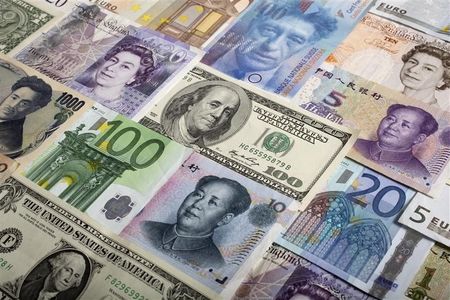
The US dollar has remained stable as markets processed the increasing geopolitical risks in the Middle East and awaited further US economic data.
The steadiness comes despite a general move towards safe-haven assets in foreign exchange markets, which has not resulted in significant de-risking, HSBC noted in a note released on Wednesday.
Domestic factors in other countries have reduced the appeal of their currencies as safe havens. For instance, Japanese officials have advised caution regarding interest rate increases, and the Bank of Japan’s Governor highlighted ongoing global economic uncertainties.
In Europe, the European Central Bank’s (ECB) hawks have been silent, aligning with market expectations of a potential rate cut in October. ECB’s Kazaks acknowledged the likelihood of a rate cut given the pronounced economic risks, although he mentioned it’s premature to conclude that inflation has been fully addressed.
Despite these dovish signals, the Eurozone’s unemployment rate remained stable at 6.4% in August. Market participants are now looking to ECB’s Isabel Schnabel for indications on whether she will counter the market’s dovish expectations.
The Swiss National Bank (SNB) has indicated a reluctance to allow the Swiss franc to strengthen, with the new president Martin Schlegel suggesting the use of policy rates and potential foreign exchange market interventions.
Schlegel also noted that the risks to Swiss inflation are more to the downside, not ruling out negative interest rates. This stance could influence the franc’s role as a safe haven, potentially making the US dollar or gold more attractive in times of heightened risk aversion.
In the United States, mixed signals from the labor market have emerged, with the JOLTS data showing a rise in job openings, while the ISM manufacturing survey indicated a decrease in the employment component. The market is now anticipating the release of the ADP private payroll estimate, with a consensus predicting a 125K increase in September.
This data, along with upcoming speeches from Federal Reserve officials, could impact expectations for the Federal Open Market Committee’s (FOMC) November meeting, where a 25 basis point rate cut is fully priced in, with a 40% chance of a 50 basis point reduction.
Lastly, Moody’s (NYSE:MCO) improved Brazil’s sovereign rating outlook to Ba1, one notch below investment grade, while maintaining a positive outlook. This reflects Brazil’s strong growth and structural reforms, including upcoming tax reform, which could contribute to long-term growth. Despite acknowledging fiscal challenges, Moody’s expects Brazil’s government debt to stabilize at around 82% of GDP in the medium term. This upgrade may contribute to a decline in the USD-BRL exchange rate, in line with Moody’s year-end target.
This article was generated with the support of AI and reviewed by an editor. For more information see our T&C.
This post is originally published on INVESTING.



